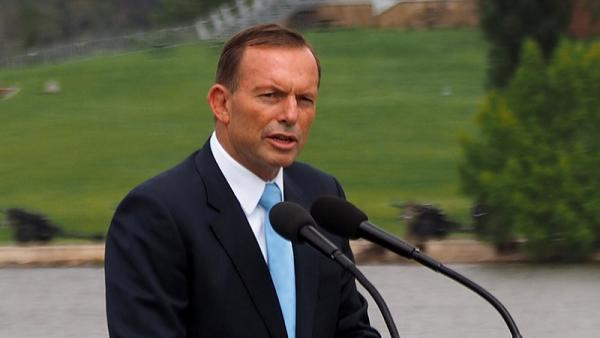Abbott injects dose of realism on Australia-China relationship

Bob Carr, Director, Australia-China Relations Institute, University of Technology Sydney |
This article originally appeared in The Australian, October 4 2016.
Australia’s recent anti-China panic seems to challenge any prospect of a positive relationship with Beijing.
All hysterias exhaust themselves in excess, as this one did when an unnamed spook alleged Chinese espionage around iron ore negotiations when, in fact, the price is set by the spot market and has been for five years.
What’s left to the two nations, when Beijing is said to be stirring pro-Mao rallies to destabilise our politics and wrecking our census website out of pure spite? Both were colourful inventions. Or, just as bizarre, directing its one million tourists to work as spies. What’s left — apart from a Cold War?
Yet Tony Abbott’s speech in New York (“History haunts us in China: Abbott’’, 1-2/10) relegated Cold War instinct about China and embraced foreign policy realism. This is a significant intervention.
It seems to chime with the views of his successor Malcolm Turnbull and Liberal icon John Howard and embodies the prevailing thinking about China on the conservative side of Australian politics: a generally positive view of the Australia-China relationship. It draws a line with the harshly negative view of China.
The realism? Abbott is prepared to say, “America shouldn’t expect predominance in East Asia any more than it did throughout Europe during the Cold War”. This seems just a shade short of saying US primacy or dominance in Asia cannot be counted on forever.
Certainly Abbott was quick to underline the US’s continuing role in preserving freedom of navigation and its alliance relationships. But he also seems at one with Turnbull and Foreign Minister Julie Bishop in not snapping to salute US admirals who drop clanging hints that Australia should run patrols in the 12 nautical mile radius of Chinese-claimed territory. Abbott did not take their hints in government; and he did not advocate it in his speech.
It is still possible to recognise the dangers in the US-China relationship — the Thucydides trap, the tension between a rising and an established power. Yet Abbott resists alarmism. He says “the more capacity China gains to challenge the US, the more it has to lose in any conflict”.
This echoes Howard’s realism about the South China Sea: Howard foresees a long period of on-and-off tension but without a descent into conflict, rather like tension over the Taiwan Straits in the 1950s and 60s.
Abbott refers positively to the free trade agreement negotiated by Andrew Robb and sealed during the visit of President Xi Jinping to Australia in 2014. He makes the point it was the first between China and a big advanced economy.
For the first time, he nominates as one of his achievements Australia’s decision to join the Chinese-led Asia Infrastructure Investment Bank. He invokes the argument “you shouldn’t insist China plays by the rules only to reject it when it does”.
And — this is a forceful comment, source considered — he says it is a pity that the US and Japan have declined to join. By implication, it was the wrong call of the White House to lobby allies, something the US administration would probably now admit.
Leading Australia into the bank against the advice of the US President remains an important symbol that Australia can make a China policy without reference to Washington; that we can run a China policy based on national interest.
This places Abbott at odds with commentary on China from Peter Jennings of Australian Strategic Policy Institute and former public servants Paul Dibb and Paul Monk, who have written in The Australian.
His prescription for “constant dialogue” with China, using forums such as the East Asia Summit, confirms this. Here is the short-term antidote to strategic mistrust. The so-called “comprehensive strategic partnership” his government concluded with the Chinese leadership fits this pattern of engagement — engagement, not isolation, not containment.
Significantly, he acknowledges internal debate in China over foreign policy — the possibility of an evolution about which the West should not be naive nor blind.
More and more Chinese people travel, study and work abroad. The figure is 100 million a year — which is the biggest difference between China today and earlier Marxist-Leninist models.
It is common sense that, in Abbott’s words, this must feed “the taste of freedom”.
He says market freedom produces social freedom, academic freedom and finally a measure of political freedom even if, in its first stages, it is political choice under the umbrella of the Communist Party.
This might be optimistic but it’s a prognosis that accords with the Western expectation that when a country is predominantly middle class, as China will be in the 2020s, its politics cannot continue locked in authoritarian mode.
Nothing here would be at odds with the instincts of Abbott’s successor, Turnbull. Realist and pragmatic, it can be considered the ruling wisdom on China of Australian conservatism. It is a more confident and studied position than Labor in opposition has yet produced.
Author
Bob Carr, former NSW premier and Australian foreign minister, is Director of the Australia-China Relations Institute at the University of Technology Sydney.

